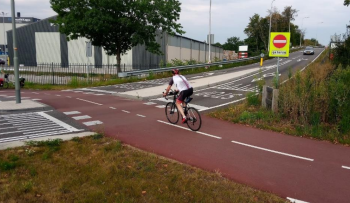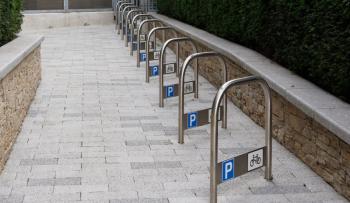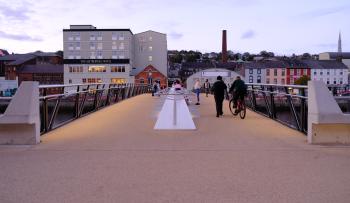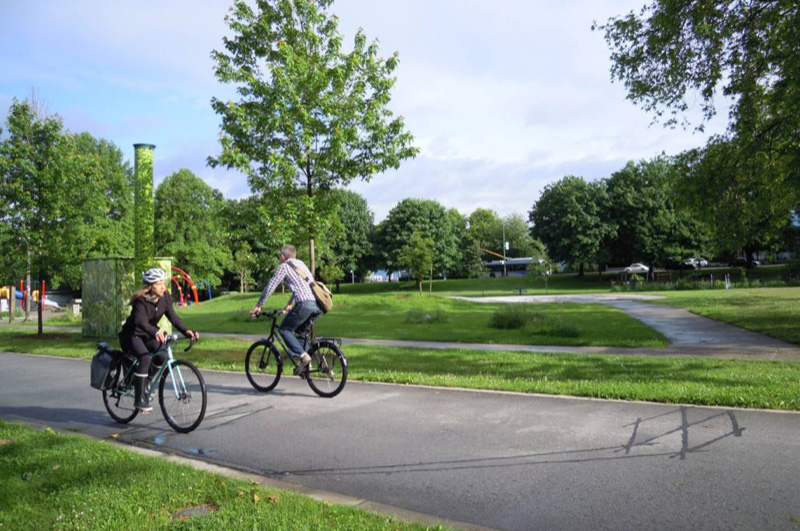
Smarter Cycling Series: How Smart Data drives Bicycle Policies forward
As part of our work to help cycling and the bike industry into the world of smart, connected and shared mobility we are working with visionaries and leaders who are setting the tone in this new mobility. We are going to be inviting some of them to share their thoughts and visions with ECF.com in the coming months.
 Raphaël Chapalain is the Digital Marketing Specialist at Eco-Counter, an international company leading in pedestrian and bicycle monitoring for the past 15 years. Eco-Counter has offices in France, Germany and Canada, and has installed more than 14,000 automatic counters in 49 countries. After pioneering the use of automatic count data as a standard practice for bicycle network development, the company now offers GIS analysis through a new software solution called Eco-Visio Maps.
Raphaël Chapalain is the Digital Marketing Specialist at Eco-Counter, an international company leading in pedestrian and bicycle monitoring for the past 15 years. Eco-Counter has offices in France, Germany and Canada, and has installed more than 14,000 automatic counters in 49 countries. After pioneering the use of automatic count data as a standard practice for bicycle network development, the company now offers GIS analysis through a new software solution called Eco-Visio Maps.
If you would like to contribute a guest post please contact Niccolo' Panozzo, Smarter Cycling Project Assistant
Cities around the world are increasingly promoting cycling through bicycle infrastructure and policy. However, in-depth insight into bicycle behavior and network performance is needed to increase the effectiveness of those investments. Smart data can fill this gap - it provides key insights relevant to developing infrastructure for a transportation mode which has largely been supplanted by the automobile.
To make cycling a reliable, quick-and-easy mainstream transportation mode, and allow for its potential to unfold, bike planners have four (4) different methods they can use: 1) Build new facilities, 2) Promote cycling, 3) Set up new services (or encourage the private sector to do so), and 4) convince partners and council members that cycling is a growing mode of transportation deserving of funding.
 These methods all require an intelligent leveraging of data to be successfully managed. Building new facilities requires prioritizing where to build, determining the type of infrastructure needed, and assessing the safety of the infrastructure itself. Organizing bicycle promotion requires knowing the population addressed to adapt messages and increase efficiency. Setting up new services benefits from meaningful data to recruit business owners or improve existing services. Finally, partners and council members can be convinced that bicycle usage is on the uptick by showing the evolution of bicycle usage in long-term data trends, or the specific impacts of events or new facilities. Accurate and continuous real-time data on bicycle usage is invaluable to successfully implementing these actions.
These methods all require an intelligent leveraging of data to be successfully managed. Building new facilities requires prioritizing where to build, determining the type of infrastructure needed, and assessing the safety of the infrastructure itself. Organizing bicycle promotion requires knowing the population addressed to adapt messages and increase efficiency. Setting up new services benefits from meaningful data to recruit business owners or improve existing services. Finally, partners and council members can be convinced that bicycle usage is on the uptick by showing the evolution of bicycle usage in long-term data trends, or the specific impacts of events or new facilities. Accurate and continuous real-time data on bicycle usage is invaluable to successfully implementing these actions.
Step 1 - Collect the data
Collecting data is the first step to using it later as a bicycle system management tool. Eco-Counter has been a pioneer for more than 15 years in collecting continuous count data that can be used to argue in favor of bicycle development projects. Beyond automatic counts, there are at least three other sources of data that are worth collecting: GIS data (existing infrastructure, crash locations, etc.), surveys, and GPS traces. Eco-Visio Maps, a software solution developed in partnership between Eco-Counter & Brisk Synergies,can collect GPS traces through a dedicated smartphone application or integrate traces from a third-party application.
Step 2 – Check and cross-reference the data
In an ideal world, collected data is ready-to-use. However, once data is collected, it may need to be checked for accuracy and cross-referenced with different data sources depending on its purpose.
Bicycle count data is being collected at over 12,000 locations worldwide, however, this data does not provide information regarding routes taken prior to, or after, a user arrives at a location, nor does it reveal the purpose of their trip. Cross-referencing data with surveys or GPS traces is key to producing comprehensive origin-destination matrices, trip durations, speed maps, segmentation of cyclist flows, and many more outputs. The resulting analysis can be used to plan infrastructure and develop appropriate services.
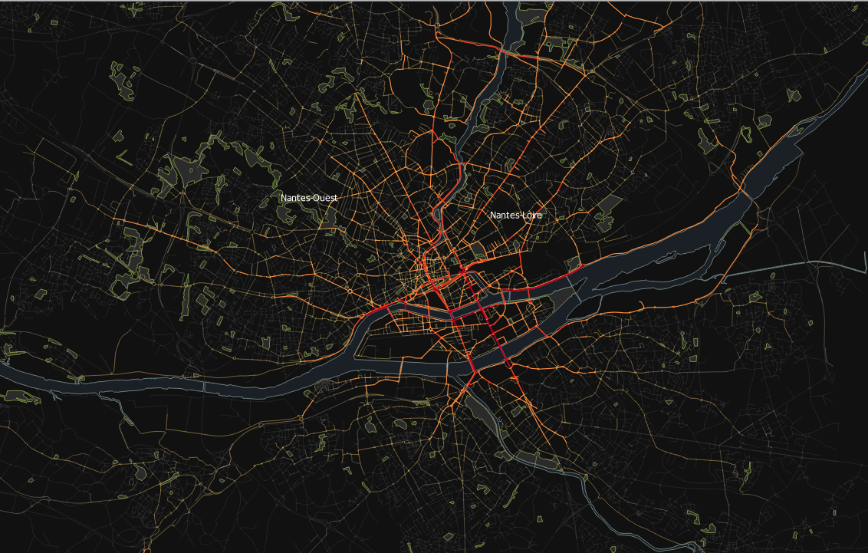
Delivering scalable solutions and real-world applications
Collecting accurate data is crucial to a better understanding of cycling trends and network performance. Lyon, the third biggest city in France, has a network of over 30 bicycle counters. Recently, they made the data available to the public. Data showed bicycle usage increased by 370% in 10 years! Making public this data across government webpages is great way to promote cycling and show its popularity growing.
Nantes also has a large pedestrian and bicycle network. To manage their extensive network, about twenty bicycle counters have been installed since 2010. The data is used to analyze trends in bicycle usage. Recently, Nantes collected GPS traces during the European Cycling Challenge. Matching these GPS traces with the existing network helps improve the understanding of how cyclists move throughout the city (preferred routes, trip duration, average speed, etc.). Network improvements can be prioritized using these insights.

In Lannion, home of Eco-Counter’s head office, efforts were made to promote cycling as a commuting option through a Bike-to-Work challenge launched by Eco-Counter in partnership with a local pro-bicycle association. Setting up a dedicated website as well as three temporary automatic counters allowed the association to understand cycling trends and strategize actions to promote cycling. In this sparsely populated and rural area, motorized transport is still common. Rough weather, hilly terrain, and long-distance commuting needs to be considered for cycling promotion to be successful.
Data collected was used to build origin-destination matrices and argue in favor of inter-municipal bicycle routes. Average commuting distances were calculated to identify the barriers to and possibilities of cycling as a transportation option.
Bike challenges, like those in Nantes and Lannion, serve as ideal opportunities to promote bicycle usage, gather meaningful data and advocate for improved infrastructure. Whether large-scale or small-scale, official or volunteer-based, bicycle data collection is helpful to driving bicycle policies forward.
Objective arguments are created and biases are reduced. Free-flowing bike traffic will always look much sparser than gridlocked car traffic. Smart data will undoubtedly help make cycling more visible and facilitate its promotion. And since promoting cycling drastically reduces pollution and CO2 emissions, addresses obesity issues, and improves quality of life, it’s quite a smart move indeed.
News category:
Network/Project Involved:
Contact the author
Recent news!
Contact Us
Avenue des Arts, 7-8
Postal address: Rue de la Charité, 22
1210 Brussels, Belgium

